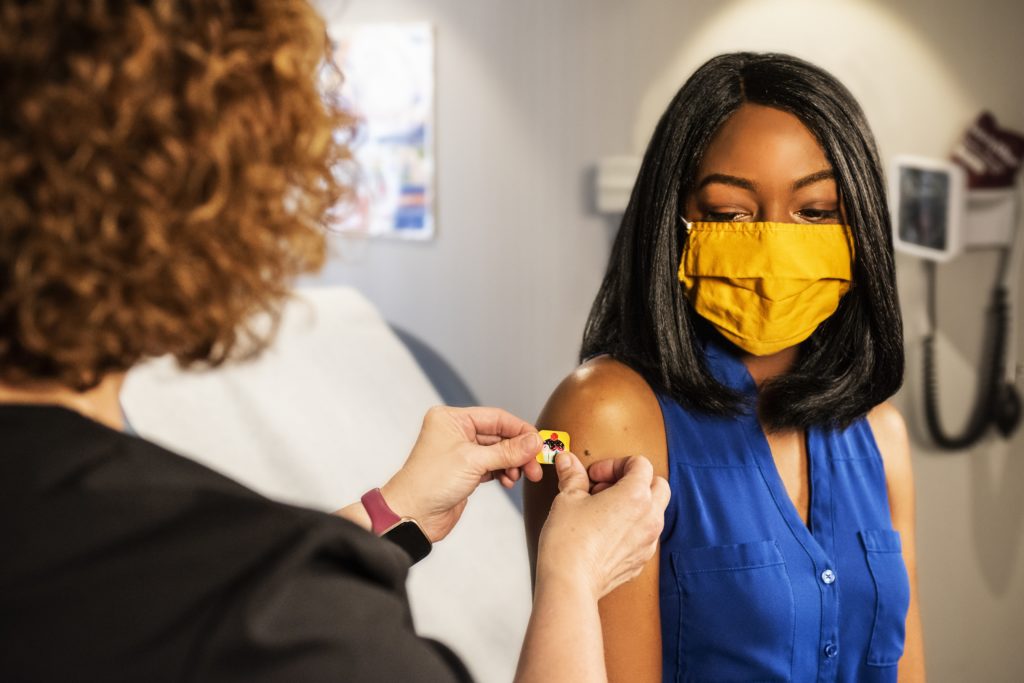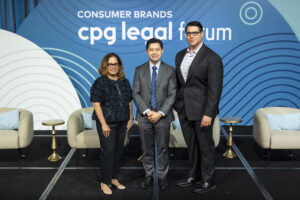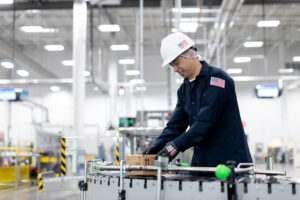
Blog
CPG Perspective on Vaccine and Testing Requirements
In the wake of President Biden’s announcement requiring all employers with 100 or more employees to ensure their workers are vaccinated or tested weekly, Consumer Brands surveyed 45 CPG companies from October 12-20 about their expectations of the mandate. The survey builds on a series of professional exchanges Consumer Brands hosts with industry companies to examine workplace dynamics reshaped by COVID-19.
Putting Plans in Motion to Increase Vaccination Rates
The CPG industry supports the goal of increased vaccination rates. Prior to the Biden announcement, some companies had already discussed plans to require vaccination for their employees. It follows that many CPG companies are working to get ahead of federal agency guidance, with the majority (60%) of respondents sharing that they have started drafting their vaccination and testing plans, though 40% said they preferred to wait for guidance.
Company respondents anticipate that their policies will extend to temporary employees and contractors, with 23% saying they definitely would and 53% saying they probably would. They also plan to make it easy for employees to meet requirements, with majorities saying they will offer on-site vaccination (59%) and/or on-site weekly testing (66%).
There is not much clarity on how employees who do not comply with vaccination or testing rules will be handled. There was not consensus on approach, but recurring themes were issuing warnings, moving to leave without pay or taking a tailored approach. Only 3% of respondents said they expected noncompliance to result in immediate termination, where more likely responses included disciplinary action (49%) or a strike system (19%).
Weighing Absenteeism and Vaccine Hesitancy
The CPG industry supports the goal of increased vaccination rates. Prior to the Biden announcement, some companies had already discussed plans to require vaccination for their employees. It follows that many CPG companies are working to get ahead of federal agency guidance, with the majority (60%) of respondents sharing that they have started drafting their vaccination and testing plans. They also plan to make it easy for employees to meet requirements, with majorities saying they will offer on-site vaccination (59%) and/or on-site weekly testing (66%).
That is not to say the industry is without concern. Industries like healthcare, education and travel that are further ahead on vaccine requirements have seen employees choose termination over vaccination. With a profound labor shortage in the CPG industry — there are about 140,000 jobs open and only 5,000 were added last month — it is understandable that 87% of companies reported some concern with how the vaccine requirements would affect their ability to attract and retain employees when compared to smaller employers not subject to the mandate. The industry’s concern is primarily stemming from uncertainty. Consumer Brands put forward dozens of questions to OSHA that need to be answered in the ETS. The detail in the guidance will determine the success of the vaccination efforts.
Anecdotally, industry companies have expressed particular concern about how the vaccine requirements will affect the truck driver labor pool. With the supply chain in crisis, there is an acute need for more truckers and real worry over what attrition over vaccine hesitancy will mean. The American Trucking Association validated that fear this week with a letter to OSHA warning the vaccine requirements could “create a workforce crisis,” and that of the carriers it represents, up to 37% of drivers would leave their current jobs.
Policies for In-Person Employees
For employees who had the ability to work remotely, 67% of companies reported at least a partial return to the physical office. For those who have returned, employees are most commonly coming into the physical office two (28%) or three (36%) days a week. Only 8% reported a five-day in-person work week.
As more workers are vaccinated, Consumer Brands asked CPG companies about their policies for masking and social distancing. Nearly one-third (31%) said vaccinated workers still have to be fully masked and another 31% said they must be masked when they are unable to socially distance. For unvaccinated workers, the expectation they be fully masked at all times is much higher at 69%, with only 10% saying unvaccinated workers must be masked when unable to be socially distanced.
What CPG Companies Need Now from Government
Throughout COVID-19, CPG companies have gone to great lengths — and expense — to provide a safe workplace. Getting more of their employees vaccinated is part of that effort. There are, however, questions that federal agencies must answer in guidance.
Consumer Brands has put forward a detailed list of questions to OSHA that its members need answers to so they can be partners in effective implementation. From getting clarity on who is covered and how long companies have to comply to what will quality workers for exemptions and if waivers will be issued if there are not workers available for essential supply chain roles, it is critical that the administration be thorough in what it issues to the private sector.
The pandemic finish line has been in sight more than once. The CPG industry will be a partner in helping America cross it.
Published on November 3, 2021




